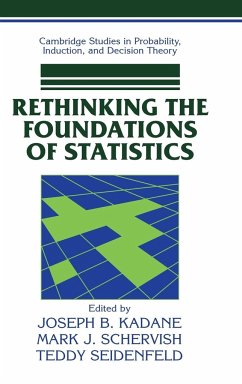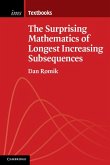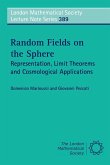This important collection of essays is a synthesis of foundational studies in Bayesian decision theory and statistics. An overarching topic of the collection is understanding how the norms for Bayesian decision making should apply in settings with more than one rational decision maker and then tracing out some of the consequences of this turn for Bayesian statistics. There are four principal themes to the collection: cooperative, non-sequential decisions; the representation and measurement of 'partially ordered' preferences; non-cooperative, sequential decisions; and pooling rules and Bayesian dynamics for sets of probabilities. The volume will be particularly valuable to philosophers concerned with decision theory, probability, and statistics, statisticians, mathematicians, and economists.
Bitte wählen Sie Ihr Anliegen aus.
Rechnungen
Retourenschein anfordern
Bestellstatus
Storno









